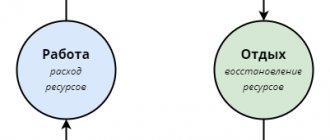Touchiness is one of the destructive human qualities. We often use this tool as a defensive reaction, a way to make the offender feel guilty, or a manipulative technique. We become familiar with it already in childhood, imitating the reactions of adults. Over time, we begin to become more and more often offended unconsciously. It is not possible to gain control over our own experiences, even when we build relationships with another person. Behind the constant feeling of resentment in a relationship there is always a whole range of negative emotions hidden - I will talk about how to cope with them further.
What is this feeling and how does it happen?
Touchiness is often a form of unrealized aggression. When you are angry or upset because of someone's words or actions, but due to certain circumstances you cannot give free rein to these emotional outbursts, a block is triggered inside that turns the unexpressed into a oppressive sediment.
Vulnerability is a consequence of self-doubt. If you are firmly confident in your thoughts, words, actions, know how to work correctly with criticism and not take subjective assessments to heart, know about your strengths and weaknesses and work with them, any attempts to hook you will not be taken seriously.
Another option for what is hidden behind resentment is unjustified expectations. This can often be seen in relationships, when we expect one thing from our partner, but get something completely different. At the same time, we do not voice or discuss our true desires in time.
The danger of these feelings is that they can become firmly and permanently entrenched within us. Accumulated, unresolved worries over trifles can ultimately result in much greater negativity, and it will be simply impossible to stop this destructive force.
Positive and negative manifestations of resentment
By its nature, such a reaction is only one of many feelings that a person is capable of expressing. But the impact on relationships with the outside world is so destructive that it is recommended to get rid of touchiness and reduce it to a minimum.
Negative manifestations:
- spoils relationships with loved ones;
- makes the touchy person unbearable;
- creates a negative image among friends and colleagues;
- affects physical condition;
- takes a lot of time.
It’s curious: for the “victim” himself there is nothing negative in this bad habit. Why does a person get offended by trifles? Psychology provides the answer: this is a simple and effective way to manipulate others. If you were offended, you got what you wanted. The goal has been achieved.
In fact, the positive manifestations of these reactions are different:
- a chance to identify your weaknesses. Words and actions hurt when they touch a nerve. Is it possible to somehow protect, work through, strengthen the weakened “bastion” of the personality in order to avoid repetition? By the way, this is one way to distract yourself: start working on ways to protect yourself in the future;
- a defensive reaction from the pain of breaking up with a loved one. There is a respite, time to switch from the very fact of separation to the feeling of injustice;
- one of the ways to cleanse yourself of accumulated negativity. In the process of getting rid of negative attitudes, a person clears away the “blockages” of frustration, anger, indignation and despondency that have been quietly accumulating.
Why a person is offended: signs of strong offense
Main reasons:
- Makes too high demands on people, which they do not meet. Such offended people have poorly developed empathy, they do not try to put themselves in the place of another person, to understand what motives he follows and what he experiences. His interlocutor simply has no right to make a mistake, so it is perceived as a disaster.
- Is in the state of a child or a victim, feels weak, does not see ways to influence the situation. This is a very convenient model of behavior, which involves completely abdicating responsibility and shifting the blame onto someone else. Admitting your mistake is much more difficult than blaming your neighbor for everything.
- It happens that a person has been rejected so often that he has forgotten how to ask for help or talk about his desires, although they do not disappear anywhere, but turn into silent expectations. Such people try to cope with everything on their own, but on a subconscious level they expect someone to take the initiative and provide them with support. To voice the fact that they need help means to demonstrate their own weakness and lack of independence. Quiet, unspoken demands and reproaches turn into unreasonable resentment: what to do with it is not easy to figure out.
Touchiness is a dangerous trait. It is always associated with certain illusions that arise in our heads: our feelings are not taken into account, they do not think about us, they treat us cruelly. We tend to think for others based on our own experience.
When we meet a person and begin to build a relationship with him, we create in our imagination an amazing picture of a future together. Girls expect flowers, romance and attention, and in response they hear: “In my opinion, this is nonsense and a stupid waste of money.” How so? Doesn't he really want to make me happy?!
How to forgive an insult?
Touchiness is an acquired character trait in psychology. We learn this from the adults around us, adopt it as a bad habit, and then spend a long time looking for ways to get rid of it.
Two pieces of advice for victims:
- throw these experiences out of your heart;
- learn to forgive.
It is difficult for someone who has been accustomed to taking offense at others all their life, manipulating them consciously or unconsciously, to follow these tips. Psychologists' clients often misunderstand what is meant by seemingly simple phrases.
Remove resentment from your heart
There is a good exercise for this: emotional isolation. It is based on a simple example. The offender is perceived by the victim as a source of conflict. If she sees him every day without the opportunity to physically isolate herself (for example, colleagues working in the same office), she should try to turn off any emotions towards the offender. A notepad, pen, paper on the table do not evoke any emotions. The same neutral indifference must be formed towards the offender. It may be difficult at first. But over time, the quarrel based on subjective perception will be forgotten, the conflict will be settled. Neutrality is the best assistant for those who want to get rid of the negative consequences of communication.
How to achieve neutrality? Work through the conflict situation once with yourself or a psychologist, come to the conclusion: the negative reaction is caused by unjustified expectations in relation to the opponent, who could not reach the set bar. Let go of the offender along with his internal perception of the world, norms, and attitudes.
How a psychologist can help: teach you how to train stress resistance. Emotional stability is the key to a harmonious, successful personality.
Learning to forgive
Forgiveness is a conscious state, sincere, always coming from the heart. Only such a deep feeling really helps to deal with conflicts faster, as well as control the situation, promptly stopping attempts to offend and the desire to be offended.
To learn to forgive, you need to work daily with your life attitudes and change them. This can be done in any state, even if at that moment there is no resentment in the heart.
Five steps to the ability to forgive and love:
- Live in harmony with your emotions.
- Learn to let go of the past and live for today.
- Control states, choose them consciously (“I choose forgiveness, not revenge”).
- Learn lessons from each situation and use them in the future.
- Forgive yourself, give love and light to others.
How a psychologist can help: There are training exercises for each step. A written statement of one’s own views, positions, and attitudes, followed by analysis, helps a lot. If you have a strong desire to follow this path, sign up for a consultation with psychologist Nikita Baturin. With its help, it is easier to learn to get rid of grievances.
The roots of human resentment in psychology: what it is, resentment, and how to deal with it
Vulnerability is a consequence of deep mental trauma. This behavior is typical of those with an inferiority complex, self-doubt, low self-esteem and inability to take responsibility. Needless to say, all this greatly interferes with the development of harmonious relationships.
Psychologist Daria Milai
Make an appointment
Touchy people are constantly waiting for someone to help them, make them happier, do what they think is necessary and right, and are very worried if someone does not fit into the framework of what they want. But is your emotional state, happiness and comfort really the responsibility of another person?
Psychosomatics of the emergence of feelings of resentment
This emotion provokes diseases and disruptions in all body systems. The most vulnerable organ may be damaged.
Aggression, as an integral component of any negative reaction, rarely finds a way out in full. Part remains inside until the person gets rid of the memories of the situation, turning his attention to other topics. While inside, an aggressive reaction has a destructive effect on:
- nervous system: headaches, discomfort in the solar plexus area, problems with the spine;
- endocrine system: hormonal balance is disrupted due to anxiety, which provokes other diseases.
Most often, according to psychology, touchy people suffer from heart disease. The heart muscle takes the blow of any experience. Unexpressed or unfinished grievances aggravate chronic diseases and add new ones. For example, gynecological problems, including infertility with an unknown cause, may be associated with misunderstandings between partners. Depression and depressed states often appear. Particularly difficult cases transform accumulated negativity into cancer or suicide attempts.
Timely work on character will help to avoid particularly serious conditions. Psychologist-hypnologist Nikita Valerievich Baturin claims: it’s never too late to start building a harmonious personality:
Consequences of Vulnerability
In addition to frequent conflicts and quarrels that lead to the breakdown of relationships, offended people expose their bodies to constant stress. No one has canceled psychosomatics, so any negativity that we accumulate inside can ultimately result in the development of serious diseases. Unwilling or unable to forgive, we occupy our thoughts with self-pity, accusations and anger. Definitely, this interferes with enjoying life, creates a feeling of chronic dissatisfaction, and becomes the cause of irritability and nervousness.
How to learn not to be offended by loved ones
The first thing you need to do when you feel this emotion is to become aware of it. You can understand the situation and correct it only if you accept what worries you and voice it. Try to put yourself in the shoes of the one who hurt you. Did he really want this? Is he aware of what was said or done? Often we overthink and take things too close to our hearts that actually have no direct relation to us. Perhaps your husband answered you harshly because he is in a bad mood due to problems at work. Everyone has different values, priorities and pictures of the world.
Face-to-face consultation
What are the features and advantages of face-to-face consultation?
Find out more
Skype consultation
What are the features and benefits of Skype consultations?
Find out more
Remember that you yourself can be tired, sleep-deprived, forgetful and inattentive - anything can happen in your head and in life. And you are not always ready to consciously control your state, reaction and behavior.
Learn to catch yourself at the moment of approaching negative emotions and ask clarifying questions to the alleged offender. Understand whether he really wanted to hurt you, or whether you are simply making unfounded conclusions about his words.
Figure out why you get offended by everything and how to prevent it
Increase your level of emotional intelligence and awareness. Try to start keeping a mood diary, periodically stopping and noticing:
- How are you feeling now?
- Why did this feeling arise?
Write down the answers to these questions and thus collect a collection of points that affect your condition.
Look at life with a positive attitude
Develop positive thinking, learn to have fun and turn into a joke any conscious or unconscious attempts to offend you. Keep it simple and allow people to make mistakes. Farewell. You will see - life will become much more pleasant.
How to ignore trifles and not look for reasons for resentment in life: value your time
To be offended means to waste a lot of nerves and energy on fruitless thoughts and self-pity. Let your mind be occupied by more important things: good work, the desire to have a good time with your loved one, a hobby. If you find a free moment to be angry and offended, then you can find room in your schedule for creation.
Play sports
Switch your head from negativity to internal and external transformations. Physical activity fills the body with vigor, improves mood and helps free the mind from unnecessary thoughts.
read books
Enrich your inner world. Resentment, from the point of view of my psychology, is a trait of insecure people who often feel offended, including towards themselves. To develop confidence, you need to constantly grow above yourself, develop, and expand the boundaries of your worldview.
Proper society
Pay attention to those with whom you communicate most often. How do these people influence you? Are you benefiting from this communication? Minimize contact with those who are often offended and condemn others. Think about how you can expand your environment by filling your space with successful, positive, growing people.
Touchiness
Just as warm clothes protect against cold, self-control protects against resentment and resentment. Increase patience and calmness of spirit, and resentment, no matter how bitter, will not touch you.
Leonardo da Vinci
Perhaps we all have to deal with grievances in our lives from time to time.
Situations when we are offended by someone, or when someone is offended by us, are almost inevitable. This is understandable, our behavior does not always suit other people, and their behavior does not always suit us, and there are many reasons for this. The main reason is our egoism, which forces us to think first of all about ourselves, while other people want us to think about them, or even about them. And we also want other people not to forget about us and to take into account our interests and desires when making certain decisions. But when our expectations for other people are not met, we become offended by them. Touchiness is not the most attractive character trait in a person and many people disapprove of it. However, it is inherent in most people, or rather, in everyone, so we inevitably have to deal with it. In this article, dear readers, I will tell you about why people are offended by each other, how to behave with offended people, and what we should do with our own resentment so that it does not prevent us from achieving our goals and enjoying life. You know, I have always believed and still believe that being offended is the lot of the weak. I know that many of us are offended by someone from time to time, and I, too, sometimes get offended, including myself. We tend to be offended, so this is a normal reaction and there is no need to be ashamed of it. But you and I must understand that this is not the best model of behavior - not the most effective, not the most effective, not the most adequate and not the most beautiful. Therefore, it is better to replace it with another model, a more advanced and, let’s say, mature model of behavior. Below I will tell you about what you can do to give up touchiness and how to do it.
Why do we get offended
To answer the question of why we are offended, we need to pay attention to how we are offended - do we take offense within ourselves in order to feel sorry for ourselves and justify our failures, or do we demonstrate to other people our resentment, our dissatisfaction, our offended by their actions in order to achieve from them a certain reaction that we need. Moreover, one thing is often combined with the other. After all, we all want something from someone, but we don’t always get what we want. What is not a reason to be offended and show other people that they are wrong, and at the same time justify yourself in your own eyes - shifting all responsibility for your failures to other people. For some of us, resentment is a real salvation from internal discomfort. So there will always be a reason to be offended, but being offended is not always appropriate, and often even harmful, so it all depends on how a person is used to reacting to what does not suit him in the behavior of other people. It happens that other people do not live up to our expectations and hopes, so we are disappointed in them - we are dissatisfied with them, we are dissatisfied with their behavior and even with ourselves for trusting these people. We feel offended, we feel betrayed. This happens often. But we can carry our resentment within ourselves, that is, we can be offended unnoticed, or we can be offended so that everyone can see it, and we do this mainly when our resentment allows us to manipulate other people. So, on the one hand, we are looking for a reason to feel sorry for ourselves and justify ourselves, and on the other hand, we want to achieve something from other people through resentment.
All this comes from childhood, when the ability to be offended by adults, mainly by their parents, allows the child to achieve certain concessions on their part. With the help of resentment, children attract the attention of adults, clearly demonstrating to them their weakness and pressing on their feelings of guilt. This is real manipulation, because when we demonstrate our touchiness to others, we try to manipulate them, we try to influence their feelings of guilt in this way in order to induce them to take the actions we need. This is why and why we are offended. Resentment can be spontaneous, when we simply don’t know how else to react to the disappointment that we have experienced because of other people, or it can be purposeful, when we want to influence someone. Why are you offended [if you are offended], dear readers? Think about it. Your resentment may not be doing you any good, regardless of whether you are resentful because it is to pity and justify yourself, or to influence other people, or both. Let's look at what else makes people touchy.
Upbringing . Despite the fact that unfavorable hormonal levels can also affect a person’s touchiness, upbringing still plays a more significant role in this matter. Well, correctly, and even let’s say, a reasonably educated person will not be offended, or in any case, he will not show his offense to anyone. Why, why should we be offended when there are plenty of other ways to survive any failures and disappointments, and to influence other people? A person who is offended demonstrates weakness, people do not respect offended people because they despise weakness because it is not viable. It is much more profitable to act from a position of strength or to interest other people in order to achieve the desired behavior and desired actions from them. Think for yourself - what do we show to other people when we are offended by them and show them our resentment? What they did was wrong—wrong for us, but at the same time, quite possibly, right for themselves? We also show them that we are unhappy with them, that we are not satisfied with their behavior, that we want an apology, for something to be done for us, and so on and so forth. In other words, we want something from people with whom we are demonstratively offended, and at the same time, we see no other way to get what we need from them. What it is? This is weakness. We demonstrate to people our inability to influence them in other ways, we admit our own helplessness. Will this help us solve our problems and tasks, help us strengthen our position in society, in the team, in relationships with the opposite sex? No, it won't help. In rare cases, people can be manipulated by influencing their feelings of pity, guilt, and their desire to be good and correct for everyone, including us. But still, in many cases, touchiness has an extremely limited range of possibilities. In general, we can be offended by selfish people as much as we want - they still won’t change anything in their behavior. But the problem is that if a person is used to being offended, is used to seeking concessions from other people in this way, because he was raised that way, one might even say that he was spoiled, it is difficult for him to give up this behavior, even if his grievances do not work. Or if a person is so morally weak that he is unable to adhere to a different model of behavior with people, then for him grievances are the only salvation. But all these problems can be solved.
Shifting responsibility . The desire to shift responsibility to others also often prompts many people to be offended by everyone who did not help them in some way. Although, why on earth should someone help someone, especially just like that, is unclear. But for some touchy people this is not so important. The main thing for them is that they are not to blame for anything, other, bad, wrong people are to blame for everything. It is they, other people, who are to blame for not meeting the expectations of the offended person, and not he is to blame for placing these expectations on them. Or other people may be guilty of not paying the person the attention he needs and doing little for him, while he didn’t really try to interest them in himself, so that it would be beneficial for them to pay their attention to him. In general, the point is that being offended by other people means seeing them as the problem, not yourself. But what's the point? How many people want to change for someone? How many people want to change, at least for their own sake? So what's the point of being offended by them, what's the point of shifting responsibility to them for how they behave with us? Well, perhaps only for internal peace, for internal comfort, there is no need for anything else.
Manipulation . The desire to manipulate people, including through touchiness, is an innate human desire. You can manipulate people with the help of resentment both consciously and unconsciously. This is done unknowingly mainly by children who simply adhere to the model of behavior that allows them to achieve the desired attitude from adults. And if adults react to a child’s grievances in the way he needs, he will continue to be offended by them in the future. We've all been through this, most of us. But some people, it must be said, have consciously taken touchiness into their arsenal and, with its help, manipulate everyone they can, everyone who allows themselves to be manipulated in this way. And those who see touchy people as poorly educated people and the most common manipulators are not mistaken in most cases. True, sometimes such manipulation looks rather naive, because, as I said above, not many people react to the grievances of other people in the way they, the manipulators, need. And this is correct, since any manipulation is not a way to find a common language with a person in order to get something from him, but at the same time give him something, but a way to achieve what he wants, without taking into account the interests of this person, without taking into account the interests and the desires of other people. This is forgivable for children; they get along with adults as best they can. But for an adult to be offended by people in order to manipulate them, at least it’s not becoming. And as a maximum, I think this needs to be punished, either through counter-manipulation, or by ignoring such people. This is about the question of how to behave with touchy people. Sometimes, of course, you can listen to them and understand them if they are offended not for the purpose of extracting unilateral benefits, but because of their weakness. But still, an offended person must be rid of this bad habit - the habit of being offended.
I would also like to note that children’s touchiness is a natural age stage. Children are forced to act from a position of weakness, putting pressure on the pity and guilt of adults; for them this is one of the few opportunities to achieve the attention they need to themselves and certain concessions. Adults are a different matter; for them, touchiness is more of a disadvantage than an advantage. It’s unpleasant to see how an adult, instead of agreeing on something with other people, prefers to be offended by them and expects that they will make concessions to him. This is ugly and in some cases naive. At the same time, touchiness can be pathological, when a person not only does not know how to react differently to other people if their behavior does not suit him, but even looks for reasons to be offended, in order to make himself a victim, to cry, to show how life is unfair to him and how bad other people who have offended him can be. There is also normal touchiness, when a person is so disappointed with other people that he simply cannot resist expressing his disappointment with them through offense. In this case, such a reaction is an exception for a person and therefore he is offended very rarely, in exceptional cases when his emotions are so strong that it is difficult for him to control them. We have all been so offended at least once in our lives, because sometimes, indeed, some people amaze us with their dishonesty and sometimes even cruelty. And when you are hurt, when you are not cared for, when you have been betrayed, you don’t really think about what your behavior looks like from the outside. Well, non-offensive people are an example for all of us to follow. Those who never take offense get the decisions, actions, and behavior they need from people in other ways, including through the ability to negotiate, interest, and persuade. As a rule, it is very pleasant to deal with such people - after all, they are quite objective in assessing their own and other people’s interests and try to think not only about themselves, but also about other people when they are asked for something. It's a pity that there aren't many such people in our lives.
Be that as it may, sometimes, I believe, you can allow yourself to be offended, especially in those cases when you were deceived, betrayed, let down by a person dear to you, whom you trusted one hundred percent. Still, a treacherous act on the part of someone close and dear to you, and especially a loved one, is a very strong blow, after which it is difficult to control your emotions. But you shouldn’t focus your attention on the offense. It must be experienced and conclusions drawn from the incident that caused it. People hurt us for a reason, but so that we perceive them adequately and do not trust them too much.
But it would be simply wonderful not to be offended at all. People who never take offense at anyone exist, but, as I already said, they are few. Usually these are self-confident people with maturity of mind and good mental health. In addition, such people understand well how to behave in our society in order to obtain from other people the necessary actions, decisions, actions, and the right attitude towards themselves. No one is going to meet us halfway just because we want it, and no matter how much you are offended by people, most of them will think first of all about themselves and their desires, goals, dreams. But our desires and dreams are our worries. Therefore, it is better to adhere to a more effective and efficient model of behavior when communicating with other people. And even if you are rightfully offended by them, try not to show them your offense unless you are sure that they will react to it in the way you want. There is no need to show people your weakness and dependence on them - as a rule, this does not make them kinder and more sympathetic.
How to stop being offended
To stop being offended, you must first find out what result you want to achieve with your offensive behavior? You need to ask yourself this question if you are offended by people demonstratively, if you show them your offense and expect a certain reaction from them. Somewhere in the depths of your soul, you clearly hope that people will make concessions to you, reacting to your resentment towards them, and do something for you that you want them to do. Perhaps you simply expect that they will apologize to you, if there is anything, or perhaps you expect that people will try to atone for their guilt to you for offending you. Surely in childhood, your grievances brought you certain positive results when adults, for example, your parents, made concessions to you. And now you expect that this model of behavior will work in adulthood and you will be able to use your grievances to achieve the same concessions as in childhood.
So think about the outcome you are hoping for. And when you understand what you want, when you realize your calculations in relation to other people, think about other ways to influence them. Well, what kind of ways these could be - it could be the pressure that you can put on others when you have a clearly winning position on a particular issue. These can be the methods I have already mentioned - to interest, attract, bribe this or that person with something so that he does something that you need, being motivated by his desires, and not by a feeling of guilt in front of you. In other words, strive for what you need, not through touchiness, but through other methods of influencing people. You will see for yourself how many of them are more effective and practical.
And do not allow those who are offended by you to make you feel guilty towards them and feel pity for them. If you know that you are right, do not make excuses to anyone, do not look for an opportunity to atone for your guilt if there is none. Behind any feeling of resentment there is always some kind of human desire - the desire of the offended person, which he hopes to realize in this way. If you are this person, then you don’t need to touch the desire itself - you need to find another way to realize it. And there are many such ways. Touchiness, as I said, is not the best way to influence other people. And if someone is trying to realize their desire at your expense, demonstratively taking offense at you and expecting certain concessions on your part, do not react, do not allow yourself to be manipulated. Teach other people to interact with you on normal, mutually beneficial terms, teach them to respect you, and at the same time themselves. Do not feel sorry for those who use pity as a tool of influence; such people do not deserve pity.
Thus, to get rid of resentment, find out why you are offended, what you want to achieve with your resentment, what your resentment will actually give you and how else you can get what you want, how else you can influence people to do something for you? These questions of yours to yourself will make your behavior more meaningful, that is, the way it should be in an adult, reasonable, prudent person who knows how to control himself.
Also pay your attention to the behavior of those people who have achieved much greater success in life than you - learn to react to certain situations from them. This is the easiest way to learn something - you just need to repeat after others, after those whom it makes sense to repeat after. So if you are a touchy person, you definitely need to start taking examples from other people, from those who are not offended by anyone, but are looking for different ways to interact with different people. We all often find ourselves in difficult interpersonal situations when we need to use a certain model of behavior to achieve the desired results. Each of us behaves differently in such situations. Someone is offended if there is a reason for this, and if there is none, then one can be invented, someone is angry, intimidates and puts pressure on people, someone persuades and begs other people in order to get the necessary decisions and actions from them, someone is trying to interest them in something, and so on. There are many ways to influence people, as I already said, and, of course, you need to be able to use them all. But at the same time, you need to more actively master the most effective behavior, abandoning ineffective, childish, unattractive behavior, which often does more harm than good. Therefore, take an example from those who act effectively, practically, competently and beautifully. And leave touchiness in childhood - in adult life you will not need it in the vast majority of cases.
We all want something, we all strive for something, we all want other people to help us realize our desires and dreams, and we expect this from them, we expect them to help us. As children, we expected a lot from our parents and other adults, and as adults, we begin to associate many of our dreams and desires with our friends, bosses, wives or husbands, politicians, and so on. This is the problem with resentment - we expect too much from others and too little from ourselves. But in this life no one owes us anything. If you don’t take care of yourself, it’s unlikely that anyone else will take care of you. Remember this and try not to be offended by other people, especially demonstratively, so as not to show both them and yourself your weakness and helplessness. Adopt a pattern of behavior that inspires respect and allows you to achieve greater success in life.
How to get rid of a grudge against a man and not be touchy
Let me give you a few recommendations.
Talk about what's bothering you, don't shut it up
Do not put off solving the problem until later. An opportunity may not present itself, and negative emotions accumulate like a snowball. At the same time, when talking about your feelings, be delicate and not demanding in order to prevent a scandal from arising.
Explain to your loved one what exactly caused your upset or anger. Forget forever that he has to guess everything himself. His world does not revolve around you - accept this fact and recognize your man as a separate person with his own “cockroaches”.
Finding common ground may be difficult at first, but that's what building relationships is all about. Over time, you will see that many conflicts can be stopped with a simple conversation started at the right time.
Don't argue, but look for a common solution
Often a woman does not understand how to cope with resentment and anger towards her husband, because he is principled and does not share her opinion. Men tend to want to prove that they are right at all costs, even if they changed their position during the dispute. Don't get emotional. Calmly explain to your opponent that you do not want to argue, and the purpose of this conversation is to come to a compromise. Be sure to let him know that you hear and accept his point of view.
Set rules of communication
If you are offended by your spouse’s rude behavior, do not try to change it, but together agree on certain boundaries. Surely, he also has something to “present” to you. Promise that you will take a step towards him and work on your touchiness, offer to leave work outside the home (if this is the reason for his bad mood). Discuss general norms in different areas of life. After this, you no longer have to explain to your husband what hurt you - just remind him of the concluded agreement.
Ask a question
Forgive old grievances
Organize an evening when you together carefully discuss everything that has accumulated inside. It is important to initially set the correct vector for the development of the conversation, to set the man up to the fact that you come in peace. Do not blame in any way. Talk about how you feel and ask if he had the same feeling? Perhaps you too have stumbled once?
Find a mutual way to let off steam
Come up with a kind of ritual that will help you not keep your frustration inside. Make a special pillow for whipping, close yourself and shout in the room - it can be anything (depending on the nature and temperament of your relationship). By getting rid of unnecessary emotions, it will be easier for you to have a constructive dialogue.
How to cope with a strong feeling of resentment and betrayal by a man
Every person has something that he cannot forgive. For example, treason, deception. It is important to define these boundaries at the initial stage of building relationships in order to avoid misunderstandings and the formation of silent expectations in the future.
Why get rid of feelings of resentment?
Touchiness in psychology, if it does not show signs of a conscious bad habit, is, in fact, a subjective assessment of someone else’s life beliefs. Because someone thinks differently and does not live up to expectations, the victim suffers. Responsibility for suffering in most cases lies with her.
Getting rid of the feeling of resentment brings to life:
- calm;
- relief of the soul;
- physical health;
- psycho-emotional well-being;
- inspiration and success.
There is no point in wasting your time on frustration and anger that a loved one or colleague did not do something or did it in their own way. At the first sign of a negative reaction, you need to take control of the situation and get rid of destructive emotions.
In the process of getting rid of it, it will be important to analyze what is happening in order to prevent a recurrence in the future. For example, if a loved one did not give a gift on the occasion of a certain date, you need to figure out why this happened. He forgot? This means that next time it’s worth reminding him in advance, preferably in a gentle form, so that he won’t be offended.











